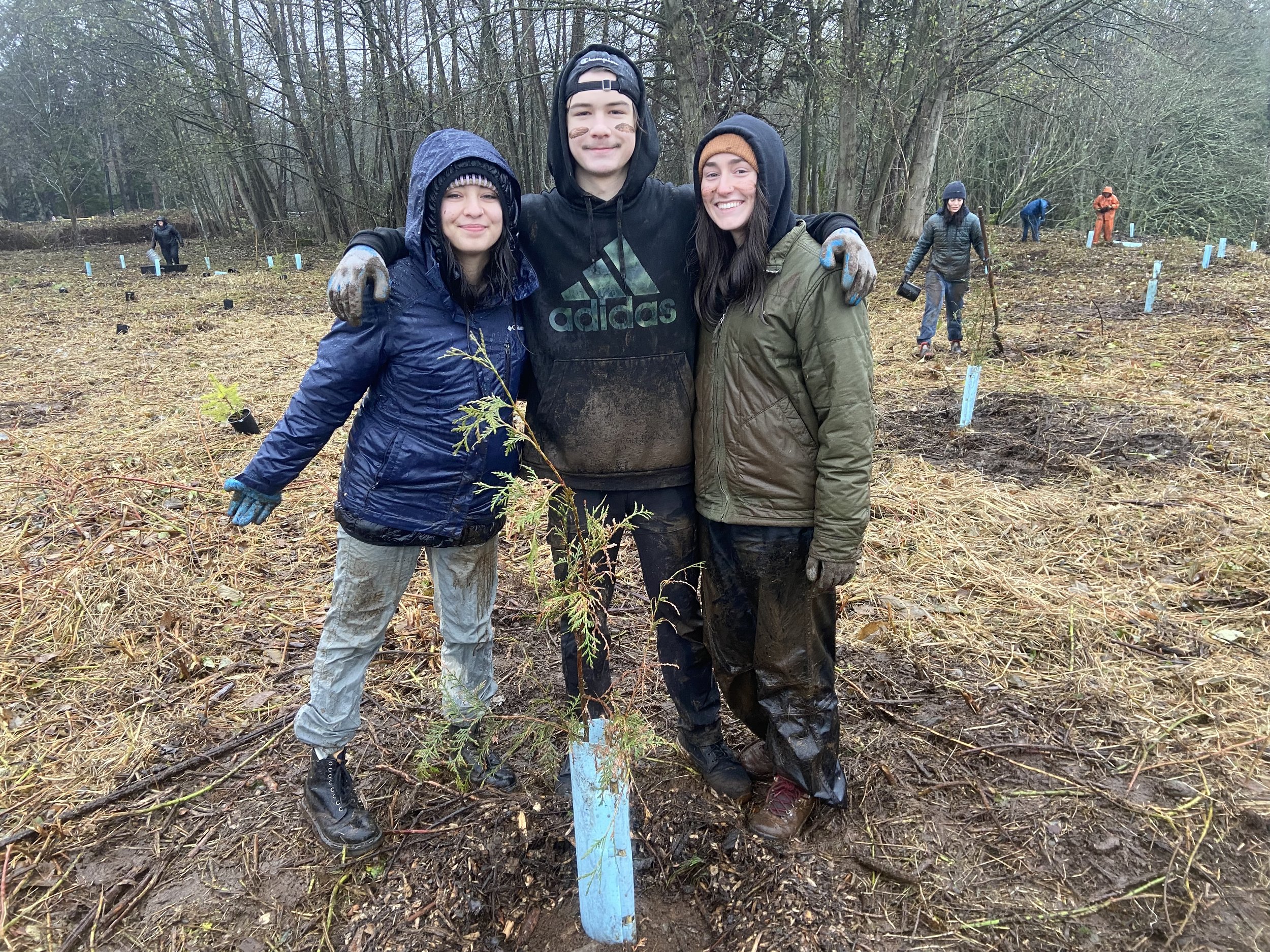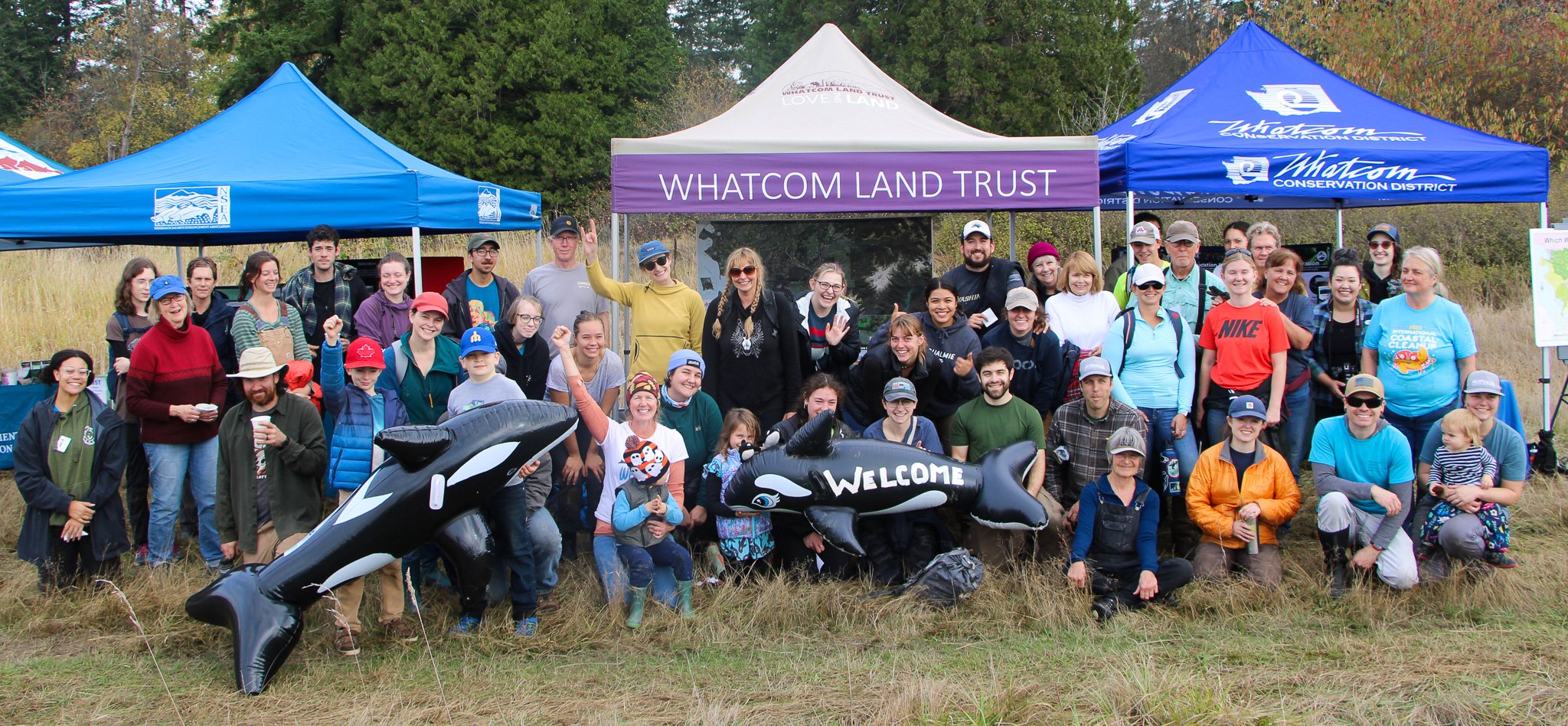Through rain and shine, mud and…more mud, we are so thankful for the 496 volunteers that gave over 1,500 hours to plant trees, remove invasive vegetation, and improve salmon habitat throughout Whatcom County this fall! We celebrated some momentous days with Make a Difference Day partnered with the City of Bellingham and our annual Orca Recovery Day with the Whatcom Conservation District and Whatcom Land Trust. We also continued our midweek Stream Team events where we revisited over 2 acres of habitat to provide some much-needed maintenance to plantings that happened decades ago.
12/9/23- Terrell Creek
With the 2,339 plants installed during the fall work parties, the year ended with a record breaking 9,707 trees and shrubs planted by volunteers in 2023. While many of those plants were part of the large estuary project at the beginning of the year, the rest were placed along nearly 1.5 miles of riparian habitat across the county. This work wouldn’t be possible without the support of amazing community partners and the local businesses that help fuel our hardworking volunteers, Tony’s Coffee, The Bagelry, and the Community Food Co-op.
We will start the new year with our annual Martin Luther King Jr. Day of Service Community Work Party with the City of Bellingham on Saturday, January 13th from 10am to 1pm along Squalicum Creek. Together, we will plant native trees and shrubs to restore fish and wildlife habitat and improve water quality near the Squalicum Creek Re-route project. NSEA will also host a couple of midweek events before our spring work party season goes into full swing in mid-February. Visit www.n-sea.org/stream-stewards for details.










